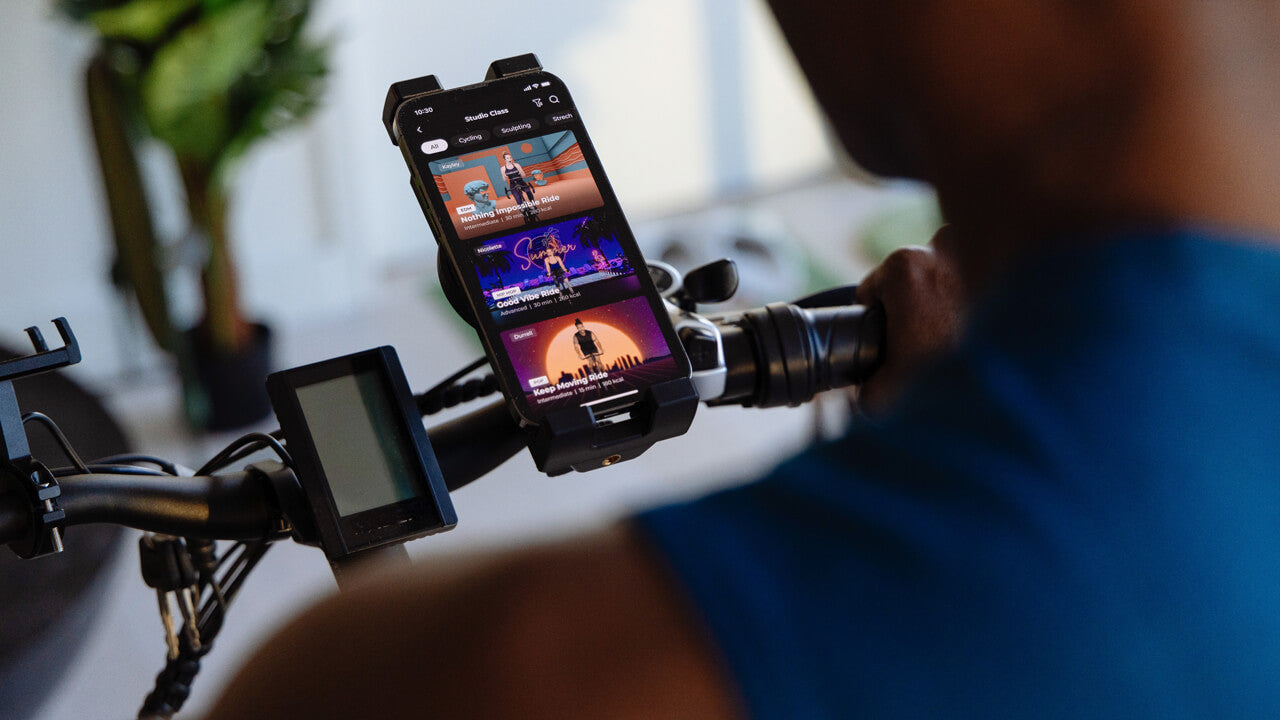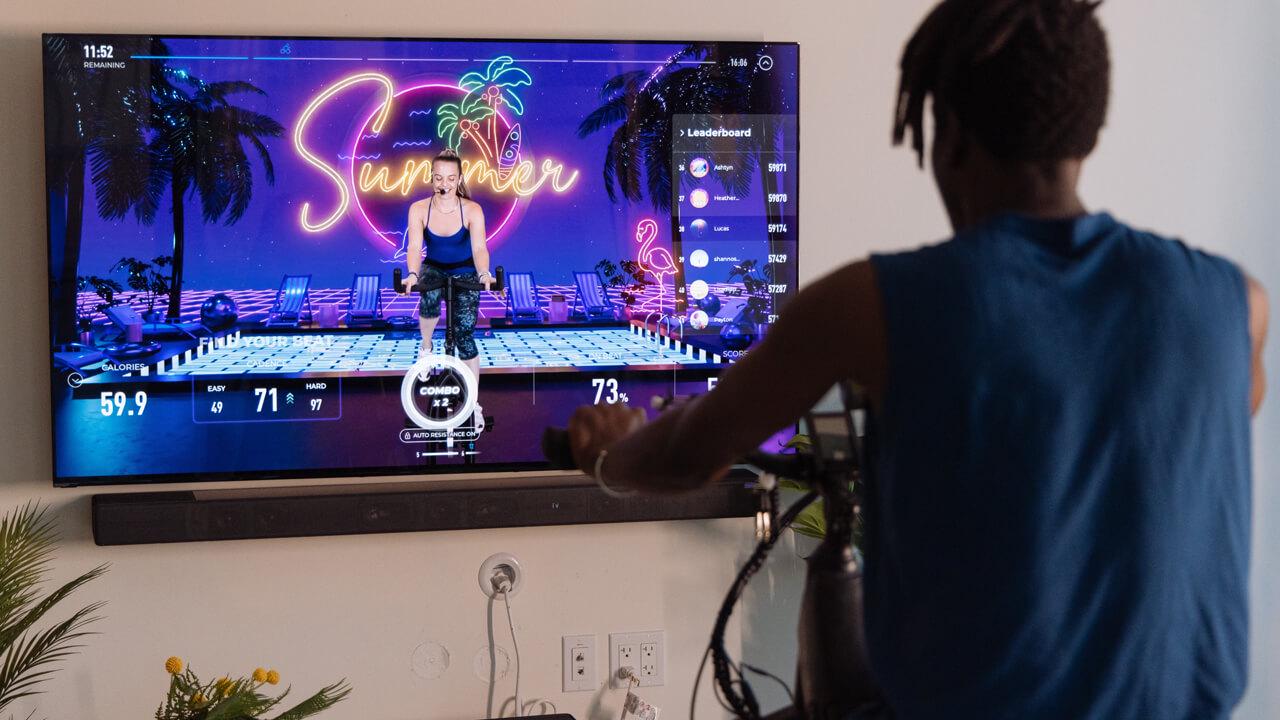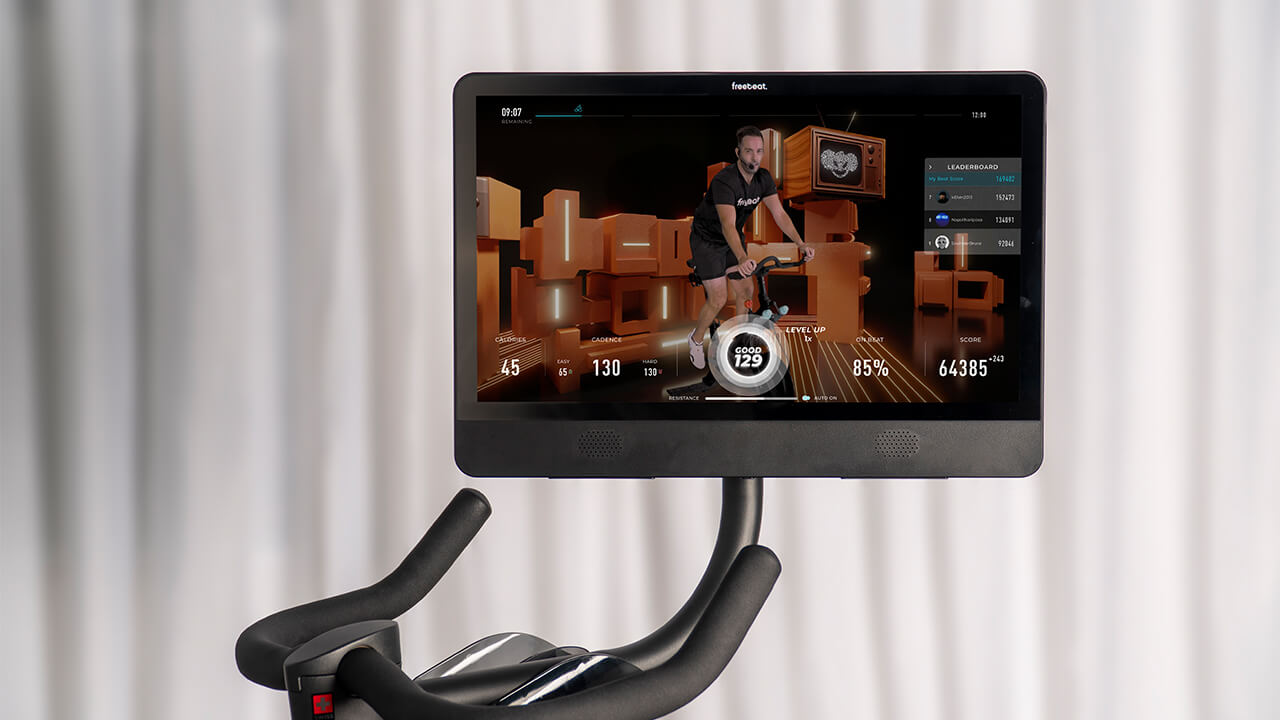The world of fitness and personal training is undergoing a significant transformation, and at the heart of it lies Artificial Intelligence (AI). No longer just a futuristic concept, AI coaching is quickly becoming the go-to solution for individuals looking to elevate their workout regimens. Far from just being a fad, AI fitness coaching can revolutionize how we approach our health and wellness, providing us with a comprehensive, personalized fitness experience that is as unique as our fingerprints.
In this comprehensive exploration of AI coaching in fitness, we break down what this technology is, how it's used, and the impact it's currently making in the industry. Whether you're an avid gym-goer or looking for a new approach to your fitness routine, buckle up and join us on this deep dive into the exciting world of AI coaching.
What is AI Coaching?
AI coaching, often abbreviated AIGC for Artificial Intelligence Guided Coaching, is a modern approach to workout guidance that brings the benefits of personalized training to the masses. It harnesses the power of machine learning and data analytics to understand the individual fitness needs, workout progress, and goals of each user. This personalized touch means that no two workouts are the same – even if performed by the same person on different days.
By using AI, coaching platforms can provide recommendations, adjust workout plans on the fly, and offer immediate feedback without the need for human intervention. This level of insight and adaptability is unparalleled, allowing individuals to push themselves further than they may have thought possible, all while minimizing the risk of injury and overtraining.
How Does AI Coaching Work?
At its core, AI coaching revolves around the collection and analysis of data. Whenever you interact with an AI coaching platform, whether by completing a workout, inputting data, or receiving feedback, you're contributing to a data pool that grows more intelligent with each interaction.
These platforms use algorithms that identify patterns in your workout performance, monitor your progress over time, and adapt based on your goals and the feedback you receive. They take into account various metrics such as heart rate, intensity of workouts, duration, frequency, and even external factors like weather or stress levels that you might not have consciously considered.
The AI "brain" behind these platforms gets smarter with each data point, allowing it to suggest increasingly tailored workout plans and offer personalized advice. The more you engage with the AI coaching tool, the more refined and personalized your experience becomes.
AI in Specific Fitness Genres
AI coaching isn't a one-size-fits-all solution. Instead, it's tailor-made to fit a variety of fitness genres. Here are some specific areas where AI coaching is making a significant impact:
AI Fitness Coaches
AI fitness coaches such as CAROL are redefining the home workout experience. These systems offer intelligent, strength-based training, with AI that adjusts the resistance and provides feedback to ensure optimal performance and results.
AI Cycling Coaches
AI Running Coaches
Running apps like Nike Run Club leverage AI to monitor your running form, suggest personalized training plans, and offer real-time ‘live’ coaching during your runs – all from the convenience of your smartphone or wearable device.
AI Gym Equipment
Next-generation gym equipment is being equipped with AI features that guide users through their workouts. From treadmills to
exercise bikes, these smart tools provide feedback, track performance, and adjust settings to ensure a safe and effective workout.
AI Group Fitness
AI isn't just for solo workouts. Group fitness experiences like
freebeat's live and on-demand interactive classes use AI to measure and compare your cycling performance with others in real-time, creating a sense of community and competition without leaving your home.
The Benefits of AI Coaching in Fitness
One area where AI coaching is gaining traction is in the world of fitness. With the rise of wearable technology and health apps, data collection has become more accessible than ever before. This influx of data makes it possible for AI coaching systems to track an individual's progress accurately and provide personalized guidance for achieving their fitness goals. Here's a look at some benefits that are driving its rapid adoption:
1. Personalized Workouts and Nutrition Plans
AI coaching systems can analyze an individual's health data, including factors like heart rate, sleep patterns, and nutrition intake. With this information, the system can create customized workout plans and meal suggestions to help individuals achieve their desired fitness goals.
2. On-Demand Training
AI coaching systems are available 24/7, making it possible for individuals to access guidance and support whenever they need it. This is especially beneficial for those with busy schedules who may not have the time or resources to work with a traditional human coach.
3. Real-Time Feedback and Adjustments
During a workout session, AI coaching systems can provide real-time feedback on form and technique through sensors in wearable devices or cameras. This instant feedback can help individuals make adjustments to improve their workout and prevent injury.
4. Motivation and Engagement
One of the biggest challenges in achieving fitness goals is staying motivated and accountable. AI coaching systems can use gamification and social elements to provide constant encouragement, reminders, and even rewards for reaching specific milestones. They can also track progress over time, making it easier to see how far an individual has come and provide motivation to keep going, turning workouts into a more enjoyable and interactive experience.
Challenges and Limitations of AI Coaching
While AI coaching offers a wealth of benefits, it also has its drawbacks and current limitations. One of the most significant limitations is the lack of emotional understanding and empathy that human coaches possess. This can make it difficult for AI coaching to truly connect with clients on a deeper level and understand their emotional needs.
Additionally, AI technology is constantly evolving and improving, which means that there may be some inconsistencies and errors in the advice provided by AI coaches. This is especially true for complex and nuanced situations, where human intuition and experience may still be necessary. Besides, the risk of users becoming overly dependent on AI coaching platforms and losing the ability to self-regulate their workouts is a concern that needs to be managed.
Furthermore, there are ethical concerns surrounding the use of AI coaching, particularly when it comes to handling sensitive information and making decisions that could have a significant impact on individuals' lives. It's essential for customers to carefully consider these potential drawbacks and limitations before fully embracing AI coaching as a replacement for human coaches.
AI vs. Human Coaching
While AI coaching offers several advantages, it's important to acknowledge that it cannot fully replace human coaches in all aspects. Here are some key differences between the two approaches:
The Personal Touch
One of the key differentiators between AI and human coaching is the personal touch. Human coaches can empathize and relate on a deeply personal level, which can lead to building trust and lasting motivation. AI systems, on the other hand, rely on programmed responses and data analysis with no innate ability to connect on an emotional level.
Scale and Accessibility
AI coaching can be a game changer in terms of accessibility. It can scale infinitely, providing personalized coaching to millions of users simultaneously. This means it can be more affordable and available to people from all walks of life, democratizing access to personal development.
Dynamic Adaptability
AI coaching is dynamic and adaptable in real time. It can adjust its strategies and advice based on the feedback and performance of the individual, ensuring that coaching is always in tune with the user's current needs.
Expertise and Specialization
With a human coach, you are limited to their expertise and experience. AI coaching systems, however, can be designed by teams of specialists, offering a breadth of knowledge and a variety of coaching styles to suit different needs.
Data Privacy and Security
The collection of personal data is a concern in the realm of AI coaching. It is crucial for users to feel that their personal information is secure, and this is an area where AI coaching platforms must excel to build and maintain trust.
Is AI Coaching Right for You?
As with any personal development approach, the key is to find what works best for you. AI coaching offers unique benefits and opportunities, but it may not be suitable for everyone. It's important to consider your personal preferences, goals, and budget when deciding if AI coaching aligns with your needs.
If you value human touch and personalized support from a coach, then traditional human coaching may be the better option. However, if you are comfortable with technology and prefer a scalable, data-driven approach to personal development, then AI coaching could be an excellent fit for you.
Who Benefits Most from AI Coaching?
Tech-Savvy Individuals
Those comfortable with technology and interested in cutting-edge tools are likely to find AI coaching more appealing. It leverages the user's existing digital literacy and often integrates seamlessly into their daily routines.
Self-Reflective Learners
Individuals who appreciate the value of self-reflection and data-driven insights will find AI coaching to be a powerful tool. The constant feedback loop can provide new perspectives and actionable insights, enhancing the user's ability to make informed decisions and drive their own development.
Time-Strapped Professionals
For busy professionals who may struggle to find the time for in-person coaching, AI coaching offers a more flexible solution. It's available 24/7 and can be accessed from anywhere with an internet connection.
Goal-Oriented Individuals
AI coaching can be highly effective for those with clear, specific goals. The digital nature of the coaching makes it easy to track progress and stay focused on the desired outcomes.
The Future of AI Coaching in Fitness
The trajectory for AI in fitness coaching is upward and shows no sign of slowing down. With continuous development and improvements in AI technology, the future promises even more sophisticated and effective coaching experiences.
AI coaching is likely to become more seamless, integrating further with wearable technology, smart home systems, and even augmented reality to offer increasingly immersive and intuitive training experiences. Interactions with AI coaches could become more conversational and natural, blurring the line between the digital and physical realms of training. Whether it's an AI cycling coach helping you prepare for your next race or a virtual personal trainer guiding you through a home workout, the age of AI coaching in fitness is here – and it's time to embrace it.




















